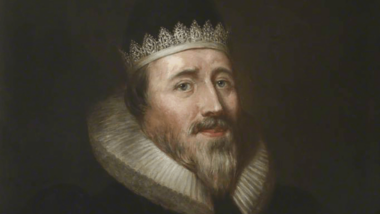The Puritans: Among God’s Giants

Revd Dr Richard Turnbull opened The Christian Institute’s fourth Autumn Lecture challenging the idea of the Puritans as “straight-laced bigots”. Instead, he argued, they were people attracted to a vision of Jesus Christ in a way we need to learn from today.
Puritanism, he stressed through the evening, was more of an idea than a set of individual people. He acknowledged clearly that the Puritans were not perfect – “they are human after all” – yet they are “among God’s giants”.
He focused on four individuals: Thomas Goodwin, Richard Sibbes, John Flavel and Thomas Boston, and the principles that guided them.
Personal holiness
Addressing the audience in Newcastle upon Tyne, he said five principles of the Puritans were:
• A quest for personal holiness;
• Fully integrated theology, spirituality and prayer;
• Worship of God centred in the family and the church;
• Seeking a renewal of church and nation;
• The centrality of spiritual conflict in the Christian life.
First Revd Turnbull considered Thomas Goodwin (1600-1680) and his teaching on the Holy Spirit. Goodwin maintained that the third person of the Trinity is essential in understanding the Bible. He described the Holy Spirit as the ‘greatest deposit of heaven’ and a ‘taste of joy unspeakable’.
They preached God’s Word, and thought about how they could make a difference in the world.
“Learn therefore to value and prize this great gift”, he said in a sermon on Ephesians chapter 1.
Guiding hand
Turning next to Richard Sibbes (1557-1635) and the issue of assurance, Revd Turnbull referenced the Puritan’s best known work ‘The Bruised Reed’.
They preached God’s Word, and thought about how they could make a difference in the world.
“Never fear to go to God”, said Sibbes, “since we have such a Mediator with him who is not only our friend, but our brother and husband”.
Richard Sibbes
John Flavel (1627-1691), Revd Turnbull said, is usually associated with providence. Flavel said one way of seeing God’s guiding hand throughout the years was to ‘record from the beginning what God has been to you and done for you’. Revd Turnbull recommended this to his hearers as a positive practical step in recognising God’s provision.
As Flavel said, sometimes “great mercies shall be conveyed to us by very improbable means”.
Family
Finally, Thomas Boston (1676-1732). While he lived later than what some would label the ‘Puritan period’, Boston nonetheless has much to teach us on the Bible. He said God requires us to read it; we stand or fall by it; it is highly prized and pleasing to God when we do; it is excellent and useful and there is a danger in misquoting it.
Concluding his talk, Revd Turnbull outlined three abiding principles of the Puritans:
• The Sabbath is a creation principle and not just for Christians;
• Worship is the tribute we pay to the King of Kings;
• The basic religious unit is the family, not the church.
He was also at pains to emphasise that the Puritans interwove their love of God with their love for people. They preached God’s Word, and thought about how they could make a difference in the world.
Revd Dr Turnbull, a trustee of The Christian Institute and the Director of the Centre for Enterprise, Markets & Ethics, recommended ‘A Quest for Godliness’ by J I Packer for further reading.

